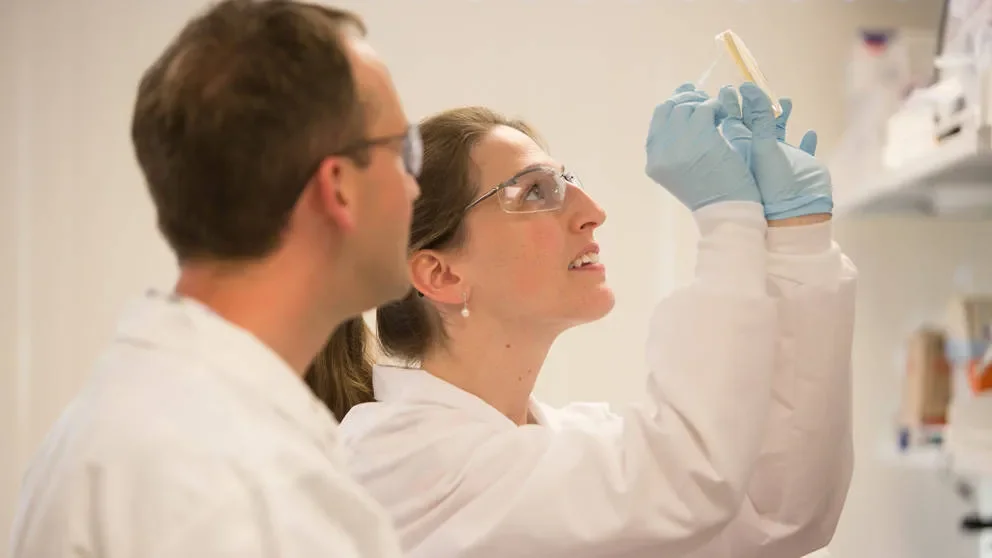Teaching the Genome Generation
Article | June 4, 2021
Genetics and genomics are driving a revolution in personalized medicine and will change the nature of the healthcare industry as well as the high-tech jobs of the future. The Jackson Laboratory (JAX) has developed Teaching the Genome Generation, a teacher professional development program aimed at pre-service STEM educators, to prepare today’s high school students for the workforce of the future.
The National Institute for General Medical Sciences has awarded JAX a five-year Science Education Partnership Award totaling $1.3 million for Teaching the Genome Generation.
The future of genomic education
Charles Wray, Ph.D., JAX vice president for education, and Sarah Wojiski, Ph.D., education director, are the principal investigators of the grant. “Our program is innovative and significant,” says Wray, “because it weaves together molecular genetics labs, bioinformatics activities that incorporate mathematics, statistics and data literacy, and bioethics lessons that bring focus to societal implications of advances in genetic and genomic technology, into an integrated curriculum of cross-disciplinary lessons.”
The curriculum will be developed for both in-person and online participation, Wojiski adds, “broadening the reach of our program to STEM educators across the nation and globe.”
Teaching the Genome Generation also provides no-cost resources, including instrumentation, reagents, consumable lab supplies to participating schools. Teachers reserve equipment to run molecular genetics labs with their students and are provided full technical support and extensive curricula and lesson plans.
JAX launched Teaching the Genome Generation in 2014 to provide hands-on training for high school science teachers, helping them to bring greater understanding of the basics of genomics to their students. That first version of the program has reached more than 14,000 students in 12 states, including 63 schools in Maine and 56 in Connecticut. JAX plans to continue providing support to the network of teachers who have participated in the program. The program offers modern genetics and genomics training for students in grades 9-12, and content has been integrated into more than a dozen different science courses, from introductory biology to stand-alone genomics electives.
With the new grant, JAX will adapt the Teaching the Genome Generation program to focus on pre-service STEM teachers, providing them with innovative lessons and modules to raise math and science literacy in the high school classroom and to prepare students for careers in informatics, bioinformatics and data science careers.
We believe our ‘teach the teachers’ approach is the most efficient and effective way to improve the quality of STEM education,” Wray says.
Teaching the Genome Generation, National Institute for General Medical Sciences, Grant #
